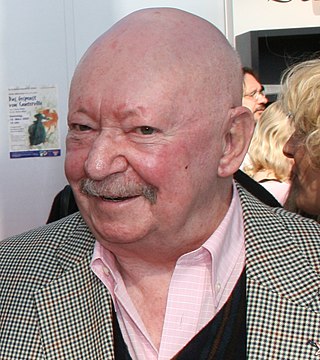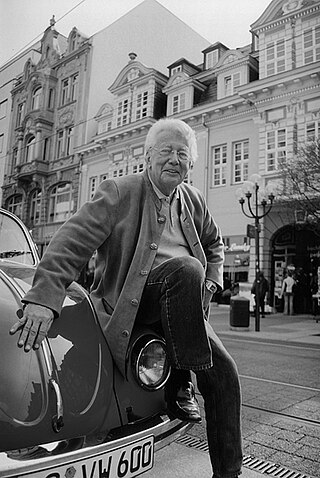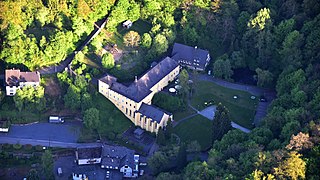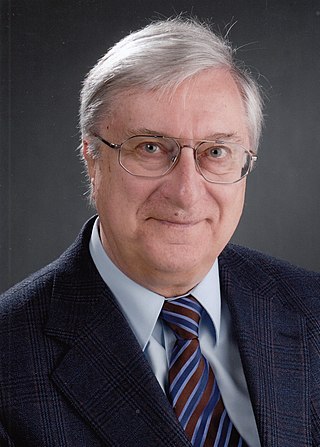Harald BraemaliasWolfram vom Stein (born 23 July 1944 in Berlin) is a German writer, designer and professor who specializes in color psychology.
Mr. Braem spent his childhood in Allendorf, Westerwald. He attended primary and secondary school in Hildesheim and later studied graphic design in Hildesheim and Hannover.
He has worked as a teacher, carried out comparative cultural investigations about matters related to archaeology and ancient history in the Canary Islands and the Egyptian pyramids, as well as conducted research pertaining to shamanism and cave painting.
Harald Braem spent his childhood in Allendorf, located in the Westerwald. Beginning in 1949, he attended primary and secondary school in Hildesheim. In 1962 he began his instruction in drawing and graphic arts at the Fachhochschule Hildesheim/Holzminden/GöHildesheim, then at a college for the advertising arts in Hannover. Subsequently, he worked as an advertising agency copywriter and creative director and from 1981 until 2000 as a graphic design professor at a vocational school in Wiesbaden. His area of expertise is Color psychology.
Harald Braem is a member of the Berufsverband Deutscher Psychologinnen und Psychologen, an occupational organization for German psychologists. In 2005 he received the Verdienstmedaille des Landes Rheinland-Pfalz, a medal of merit granted to him by the German State of Rheinland-Pfalz. In 2006 he founded Das Institut für Farbpsychologie, (Institute for Color Psychology) in Bettendorf. He has written numerous technical books and articles, among others, the standard work "Die Macht der Farben", ("The Power of Colors"). However, his avid interest as a writer extends much further, with published works ranging from poetry to fantasy to historical novels.
Beside his duties as an instructor, Braem had done extensive work in the areas of folklore, comparative cultural studies and archeology. Of particular interest to him is the ancient and early history of the Canary Islands, pyramids, shamanism, cave paintings and petroglyphs.
Since 1988 Braem has headed the Kult-Ur-Institut für interdisziplinäre Kulturforschung in his place of residence, Bettendorf, located in the state of Rheinland-Pfalz He is a curator for the World Heritage Museum in Bettendorf und the initiator of many cultural projects. Some examples are the Nassauer Kulturpreis, the Nastätter Literaturtage, the Förderkreis Keltenhof Bettendorf, the Limeskastell Pohl, and the Kunst- & Literaturpfad Loreley or KLP.

Christoph Meckel was a German author and graphic artist. He received awards for his works which connect illustrations with the written text, sometimes texts by others.
Otfried Höffe is a German philosopher and professor.

Dieter Borchmeyer is a German literary critic.

Günter Kunert was a German writer. Based in East Berlin, he published poetry from 1947, supported by Bertold Brecht. After he had signed a petition against the deprivation of the citizenship of Wolf Biermann in 1976, he lost his SED membership, and moved to the West two years later. He is regarded as a versatile German writer who wrote short stories, essays, autobiographical works, film scripts and novels. He received international honorary doctorates and awards.

Max Herbert Eulenberg (1876–1949), was a German poet and author born in Cologne-Mülheim, Germany. He was married from 1904 to Hedda Eulenberg.

Mörsbach is an Ortsgemeinde – a community belonging to a Verbandsgemeinde – in the Westerwaldkreis in Rhineland-Palatinate, Germany.
Otto Friedrich Bollnow was a German philosopher and teacher.

Ferdinand Fellmann was a German philosopher. After the expulsion of his family in 1946 out of Hirschberg Fellmann grew up in Hameln/Weser (Germany).
Norbert Müller-Everling is a contemporary German artist working with concrete art.
Johannes Mötsch is a German archivist and historian.

Dieter Thomas Heck was a German television presenter, singer and actor. He is known as the presenter of the popular TV program ZDF-Hitparade, featuring German Schlager music, from 1969 to 1984, reaching millions of people. As an actor, he starred in the TV play Das Millionenspiel in 1970.

Hanns-Josef Ortheil is a German author, scholar of German literature, and pianist. He has written many autobiographical and historical novels, some of which have been translated into 11 languages, according to WorldCat: French, Dutch, Modern Greek, Spanish, Chinese, Lithuanian, Japanese, Slovenian, and Russian.

Volker Gerhardt is a German philosopher. He specializes in ethics, political philosophy, aesthetics, metaphysics and theology. His historical studies are centered on Plato, Kant and Nietzsche but have also dealt with Hegel, Marx, Jaspers, Voegelin, Hannah Arendt, Carl Schmitt and others.

Franz Manfred Wuketits was an Austrian biologist, university teacher and epistemologist. He wrote extensively on epistemology, the history and theory of biology, evolution theory, evolutionary ethics, evolutionary epistemology and sociobiology.

Eveline Lemke is former German politician and member of the Alliance 90/The Greens. From 18 May 2011 until 18 May 2016, she was vice minister president of Rhineland-Palatinate and Minister for Economics, Climate Protection, Energy and Regional Planning. On 27 March 2011, she was elected into the Landtag of Rhineland-Palatinate. She was the leading candidate for her party in the 2016 Rhineland-Palatinate state elections along with The Greens faction leader in the Landtag, Daniel Köbler, after having been leader of the party since 2006. As vice minister Lemke represented the state of Rhineland-Palatinate in the German Bundesrat. As author and speaker in green technological issues and Circular Economy, she founded Thinking Circular in 2017. This thinktank is listed in the Sustainable Development Goals Help Desk, a platform by the United Nations since July 2018. She is also working as consultant together with Prof. Michael Braungart, chemist and inventor of the design philosophy Cradle-to-Cradle, Martin Lees and David Wortmann (DWR-Eco-Innovation-Alliance).
Salomo Friedlaender was a German-Jewish philosopher, poet, satirist and author of grotesque and fantastic literature. He published his literary work under the pseudonym Mynona, which is the German word for "anonymous" spelled backward. He is known for his philosophical ideas on dualism drawing on Immanuel Kant, and his avant garde poetry and fiction. Almost none of his work has been translated into English.

Marienthal Abbey was a Franziscan monastery in the Westerwald in the present-day county of Altenkirchen in the German state of Rhineland-Palatinate. Today Marienthal is a village in the municipality of Seelbach bei Hamm (Sieg). On 30 June 2011 it had a population of 55.
The orders, decorations, and medals of the German states, in which each states of Germany has devised a system of orders and awards to honour residents for actions or deeds that benefit their local community or state, are in turn subsumed within the German honours system. Each state sets their own rules and criteria on eligibility and also how each medal is awarded and presented. Most of the orders allow for the recipient to wear their orders in public.
Herbert Dellwing was a German art historian and historic preservationist. He lived and work in Speyer and Neustadt an der Weinstraße.

Hermann Josef Ludwig Roth is a German theologian and scientist, cultural historian and historian of science, educator and monument preservation and nature conservation activist. He is a specialist in the area of mediaeval reform movements and is considered today’s foremost expert on the geography of the Rhineland region and on the life and work of the naturalist, Prince Maximilian of Wied-Neuwied, and his circle.